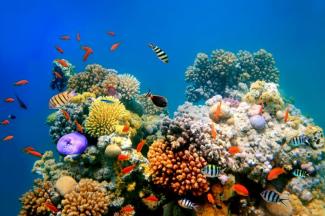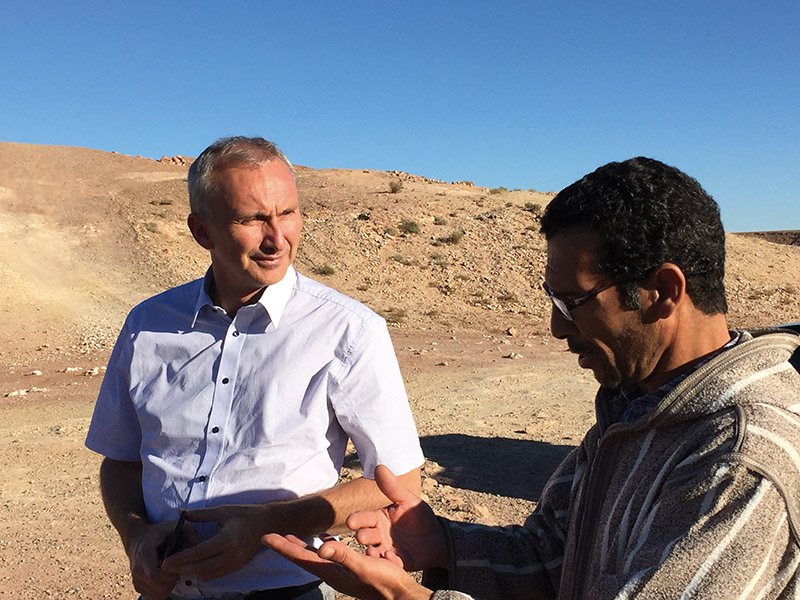Sea preservation
Preserving coral reefs and mangrove forests

Coral reefs with a total size of two million hectares, extensive mangrove forests and more than 1,400 species of fish make the Caribbean islands one of the world’s five most important hot spots for biodiversity. The Caribbean Sea also offers protection for many migratory animals. For example, six out of the seven endangered species of sea turtle live here. Biologists have counted 300 bird and mammal species that are only found here. The Caribbean Biodiversity Fund was established to protect this biological diversity and the natural resources in the Caribbean. Its Secretariat is based in the Bahamas, and one representative each from the non-governmental organisation The Nature Conservancy and from KfW have been delegated to the supervisory board.
The Caribbean Biodiversity Fund needs at least USD 40 million to be able to designate new and preserve existing conservation zones. KfW alone provided EUR 20 million on behalf of the BMZ, while The Nature Conservancy and other donors made further contributions.
Eleven countries and territories have already set up national conservation funds that receive funding from the Caribbean Biodiversity Fund to promote their respective national conservation zones, for example to buy patrol boats, revitalise habitats or extend the zones. The countries involved are Antigua and Barbuda, the Bahamas, the Dominican Republic, Grenada, Haiti, Jamaica, Puerto Rico, St. Kitts and Nevis, St. Lucia as well as St. Vincent and the Grenadines, which joined the Caribbean Challenge Initiative in 2008 with the purpose of placing 20% of their coastal areas under protection by 2020.
KfW will follow the fortunes of the fund during the start-up phase before retreating and handing responsibility over to the trust that runs the fund. It is assumed that by then the fund will be generating sufficient returns to cover the needs of the marine conservation areas together with further proceeds from the national conservation funds, such as entry fees.
Last but not least, protecting biological diversity benefits the local economy too, and therefore people. Throughout the Caribbean, income from fishing and tourism amounts to an annual USD 80 billion. Many people are dependent on these sources of income that are based on the natural diversity of the Caribbean islands.












